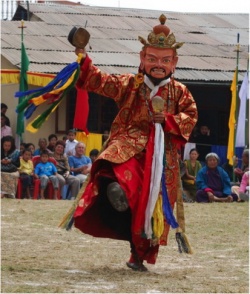False delimma falacies
In false delimma falacies a limited number of options (usually two) is given, while in reality there are more options. A false dilemma is an illegitimate use of the "or" operator. For example:
"Either you're for me or against me."
"America: love it or leave it."
"In fighting situation, taekwondo practitioners will either kick or punch."
Argumentum ad Ignorantiam
Argumentum ad ignorantiam means "argument from ignorance." This fallacy occurs when it is argued that something must be true, simply because it has not been proven false. Or, vice versa. Lack of proof is not proof. This is not the same as assuming something is false until it has been proved true, as in the justice system where you are assumed innocent until proven guilty. This is a special case of a False Dilemma, since it assumes that all propositions must ether be known to be true or known to be false. For example:
"Of course pet psychics are real. Nobody can prove otherwise."
"Of course pet psychics are fakes. Nobody has shown any proof that they are real."
In scientific investigation, if it is known that an event would produce certain evidence of its having occurred, the absence of such evidence can validly be used to infer that the event did not occur. However, it does not prove it with certainty. For example:
"A flood as described in the Bible would require an enormous volume of water to be present on the earth. The earth does not have nearly that much water, even if the water frozen into ice at the poles is used. Therefore no such flood occurred."
However, it is possible that some unknown process occurred to remove the water after the flood. Good science would then demand a plausible testable theory to explain how it vanished.
Slippery Slope
To show that a proposition P is unacceptable, a sequence of increasingly unacceptable events is shown to follow from P. A slippery slope is an illegitimate use of the "if-then" operator. For example:
"If I make an exception for you then I have to make an exception for everyone."
"If we pass laws against fully-automatic weapons, then it won't be long before we pass laws on all weapons, and then we will begin to restrict other rights, and finally we will end up living in a communist state. Thus, we should not ban fully-automatic weapons."
Complex Question
Two otherwise unrelated points are conjoined and treated as a single proposition. The reader is expected to accept or reject both together, when in reality one is acceptable while the other is not. A complex question is an illegitimate use of the "and" operator. For example:
"Do you support taekwondo and believe it is the best martial art?"
"Have you stopped using steroids?" (This asks two questions: did you use steroids and did you stop?)


